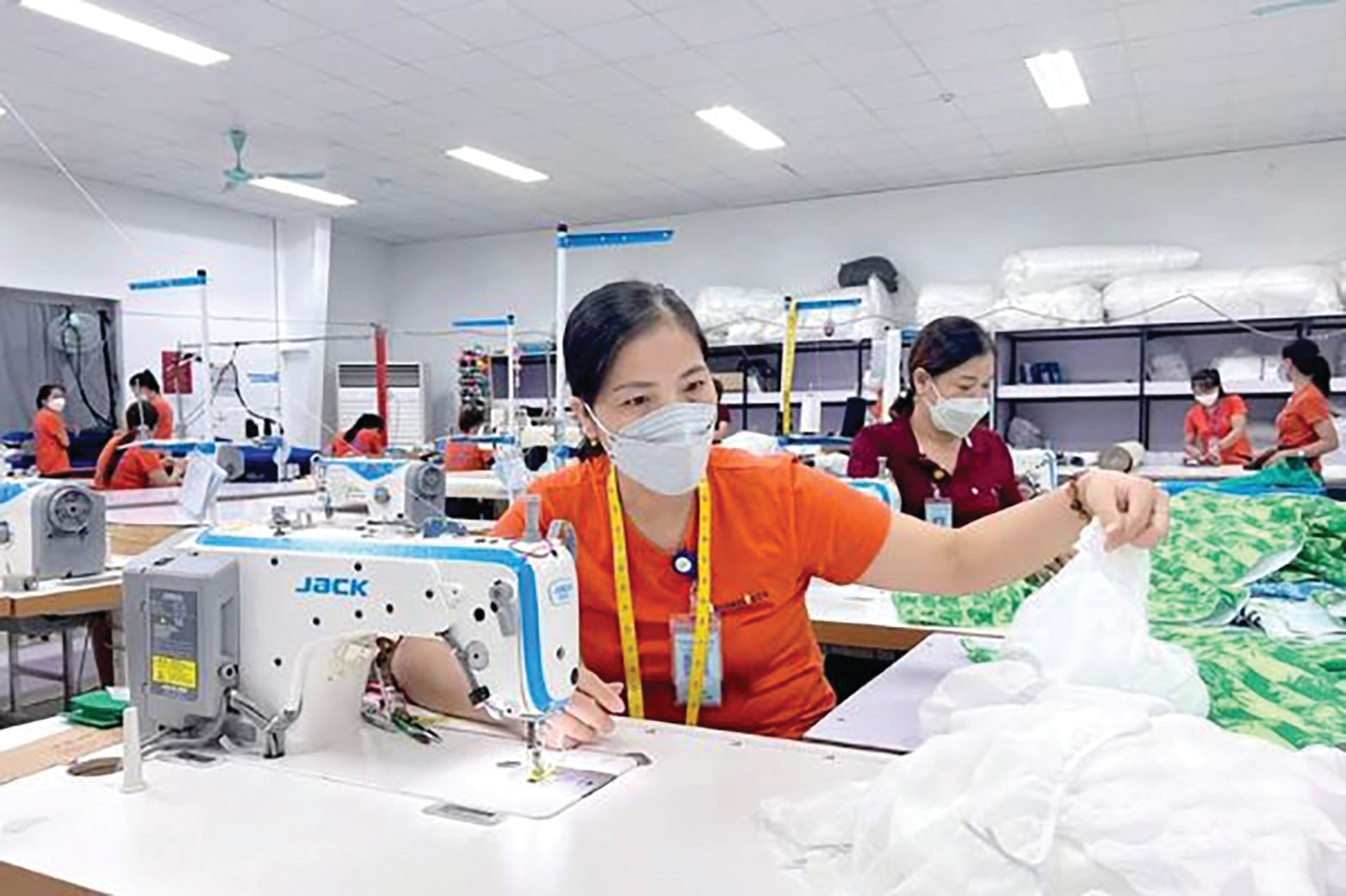Interest rate support for private sector enterprises
In accordance with the sprit of the Resolution 68-NQ/TW dated May 4, 2025, issued by the Politburo, a range of specific support policies for private sector enterprises have been approved by the National Assembly.

According to Resolution 198/2025/QH15, the National Assembly passed special mechanisms and policies to promote private sector economic development. Chapter IV focuses on financial, credit, and public procurement support. Article 9, which covers financial and credit support, includes a key provision: “Private sector enterprises, household businesses, and self-employed individuals are entitled to a 2% interest rate subsidy from the government when borrowing capital to implement green and circular projects and apply environmental, social, and governance (ESG) standards.”
“Targeting” the Right Beneficiaries
First, this is a particularly significant policy designed to address the main issues that private sector businesses, especially microenterprises, household businesses, and entrepreneurs, face. These businesses frequently struggle with limited resources and credit availability, especially when it comes to expensive. This policy is essential, according to financial analyst Nguyễn Lê Ngọc Hoàn.
Second, the policy clearly defines the eligible beneficiaries and project types: "to implement green and circular projects and apply ESG standards” — aligning with the consistent vision of the Party and State. As General Secretary Tô Lâm emphasized, “To achieve rapid and sustainable development, Vietnam must break away from old paths.”
Accordingly, the private sector is identified as the most important driver of economic growth and should be given precedence and support through appropriate mechanisms and policies to help overcome national challenges. This resonates with General Secretary Tô Lâm’s view: “Economic growth shows signs of slowing; labor productivity and innovation capacity remain limited; growth quality is not yet truly sustainable; and the risk of falling into the upper-middle-income trap persists.”
On a broader level, the targeted beneficiaries of this support policy align with global trends in addressing climate change and with Vietnam’s long-term goals of becoming a high-income, powerful, and prosperous nation by 2045.
Implementation Conditions
Recent and upcoming changes to the banking system — such as the revision of the Law on Credit Institutions and the proposed formalization of Resolution 42 — are expected to remove bottlenecks in handling non-performing loans and strengthen financial institutions.
According to SBV (State Bank of Vietnam) leadership, the proposal to authorize SBV to provide 0% interest unsecured loans to credit institutions aims to allow more flexible regulation to maintain system safety and national financial security. This would enhance SBV’s ability to support liquidity when necessary.
“When implementing Resolution 198/2025/QH15, this is expected to serve as an important legal framework for SBV to proactively support liquidity for banks. Commercial banks won’t have to ‘look at each other’ when joining support programs, since lending and refinancing mechanisms will be clearly outlined. SBV will also better fulfill its role as the lender of last resort, ensuring long-term and stable capital flows — including subsidized capital,” the expert added.
Many commercial banks also noted that green capital resources remain limited, especially as there is no specific green credit support from SBV yet. Current green financing mainly depends on banks balancing their own deposit rates based on market mechanisms. Thus, with Resolution 198/2025/QH15 being one of the four main policy pillars, there is hope for improved access to supportive capital sources.
Additionally, reflecting on the previous 2% interest rate bailout worth 40 trillion VND under the Socio-Economic Recovery and Development Program — which had a disbursement rate of just 3% by the end of 2023 — it’s clear that implementation must be more effective. SBV’s surveys indicated that many borrowers were reluctant due to fears of audits and post-loan inspections.
Therefore, the new 2% interest rate support program under Resolution 198/2025/QH15, in alignment with Resolution 68-NQ/TW, must emphasize transparency, simplification, and streamlined administrative procedures from the outset.
To achieve this, we must return to the root of green economic development: the State must urgently complete the legal framework and criteria for green classification, so that businesses can prove their eligibility for subsidized loans. In turn, commercial banks will have a clear basis for verifying documents and disbursing green credit in accordance with the policy.
According to Mr. Lê Ngọc Lâm, General Director of BIDV, sustainable development, green economy, and ESG are becoming a global trend. In the relationship between corporate growth and sustainable development, banks play a key intermediary role by providing green finance products and services.
He emphasized the need to complete the legal framework and increase transparency in mechanisms to mobilize international green capital, allowing Vietnamese commercial banks to be proactive in expanding green lending in support of the economy in general — and the private sector in particular.
Furthermore, Mr. Lâm stressed that enterprises themselves must have a strategy for green development, understand ESG standards, and integrate ESG practices into their operations. They must commit to green standards and regulatory compliance so that banks have a clear basis to evaluate and approve green financial support for the right beneficiaries.








